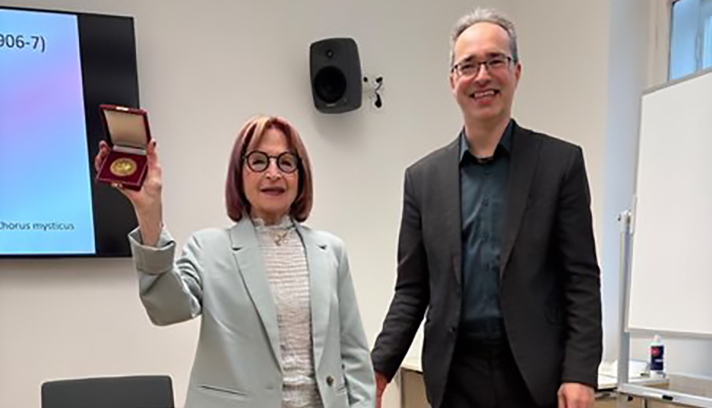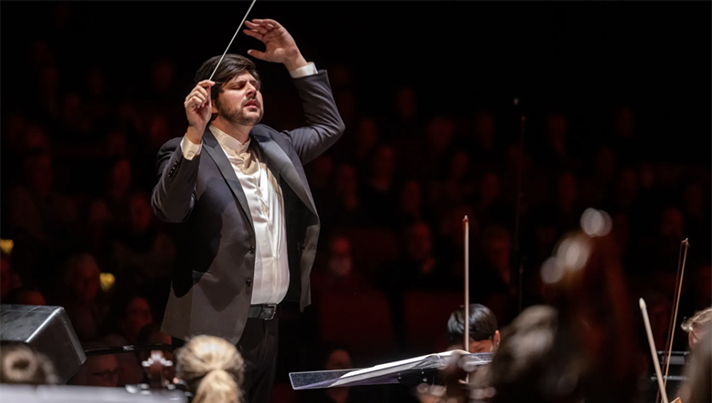Regular Force musicians Katrina Bligh (BMus’09) and Tony Taylor (MMus’18) talk about their careers in the Canadian Armed Forces and why they love it
By Tze Liew
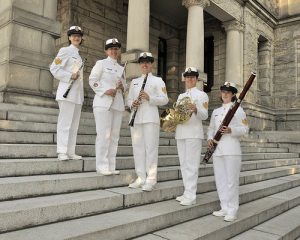

Katrina Bligh (BMus’09), left, is an oboist with the Band of the 15th Field Regiment, Royal Canadian Artillery and the Ceremonial Guard. Photo: MARPAC Imaging Services
Plaza Sotomayor, Valparaiso, 2018. It is the 200th anniversary of the Chilean Armada. Canada has sent the Naden Band of the Royal Canadian Navy to join in the celebrations. Katrina Bligh, Petty Officer 2nd Class and oboist, is performing in a military tattoo in front of a beautifully lit, palace-like navy headquarters, bringing the gift of music to a plaza full of people. It’s an incredible experience she will never forget.
Becoming a military musician wasn’t necessarily the path Bligh thought she would take when she decided to study music at UBC. Looking back on her university years, she remembers grappling with the question so many students face: What do I do with my music degree?
“I wasn’t sure if I wanted to become an orchestral musician. My mother [Elizabeth Volpé Bligh, a UBC faculty member] worked as a harpist in the Vancouver Symphony Orchestra for 35 years, so I knew very well what it took. But I just wasn’t convinced,” Bligh says.
Then a full-time job for oboe came up in the Regular Force in her fourth year – and Bligh jumped at the opportunity. At the time she had been working in the Reserve with the Band of the 15th Field Regiment, Royal Canadian Artillery and the Ceremonial Guard. After a successful audition, she was assigned to the Naden Band of Victoria, and has worked there for a decade since.
“I was really lucky. Oboe is what we would consider a unicorn instrument, since there’s only one per band – there wasn’t another position open for five years after I got it.”
It may be surprising to learn that there is space for the arts in a regimented, conservative sector such as the military. Most classical musicians end up finding careers in orchestras, freelance work or teaching – not many would think of the military. But in fact, it can be an exciting and varied job for musicians. Starting with a five-year contract as a Corporal or Leading Seaman, military musicians are guaranteed the security of a steady income and extensive coverage of health and social benefits, which isn’t always the case in freelance and orchestral work.
Tony Taylor, a tuba player and Leading Seaman of the Stadacona Band of the Royal Canadian Navy, Halifax, is another UBC alumnus who has found his calling as a military musician. Last summer he played the Changing of the Guard at Buckingham Palace and Windsor Castle, England – something that had always been on his bucket list.
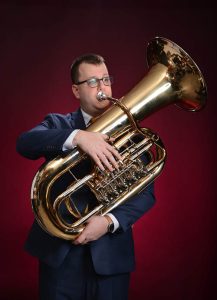

Tony Taylor (MMus’18) is Leading Seaman of the Stadacona Band of the Royal Canadian Navy
“I love military bands. There’s something about the pomp and ceremony that really gets me going. It’s so satisfying to see a band in step and marching down the street, buttons and boots all shiny,” says Taylor.
Like Bligh, Taylor also worked as a Reservist during his time at UBC. Working in the Reserve gives students the opportunity to experience what a military music career is like before signing up for the Regular Force, and to make money to get through university. It also makes it easier to transition into the Regular Force, since candidates will already have some experience and basic military training under their belt.
“As a Reservist I played on Parliament Hill in Ottawa, in the Royal Nova Scotia International Tattoo in Halifax, and augmented Regular Force ensembles,” says Taylor. “Winning a full-time job with the CAF has been my dream since I was a cadet in my teens, and everything I did as a Reservist only cemented my desire to land the job.”
Work in the Regular Force varies from day to day, and from band to band. Other than their primary duty as musicians, band members are required to do administrative work, managing finance, public outreach, library and supply. Engagements come in all kinds: parades, governmental ceremonies, public concerts, recitals, military and state dinners. The ensembles can be split into stage and dance bands, classical chamber groups and jazz combos.
“There is quite a bit of musical satisfaction you can get: it’s not just all marches,” says Bligh. “There are engagements you can expect to get year after year, like Remembrance Day, but a lot of the time you have no idea what’s coming up next. For public shows we strive to play music that the audience will appreciate and is also rewarding for the musicians.”
The Naden Band has played Shostakovich’s Symphony No. 5 and Mussorgsky’s Pictures At An Exhibition, pieces you would expect to play only in larger orchestras. Although the bands consist of only about 35 members, they are not always limited to small-ensemble repertoire; collaboration with local ensembles opens up a lot of possibilities.
Then there are the exciting travel opportunities and the chance to connect emotionally with history and people through music. Bligh has toured the Kootenays, Haida Gwaii and Dieppe, to name a few. Taylor has toured France and Belgium commemorating the Centenary of the End of World War I.
“We get to learn so much of the history of military and local areas by playing in so many ceremonies. You get to see so many people and places, and help bring an emotional context to events,” says Taylor.
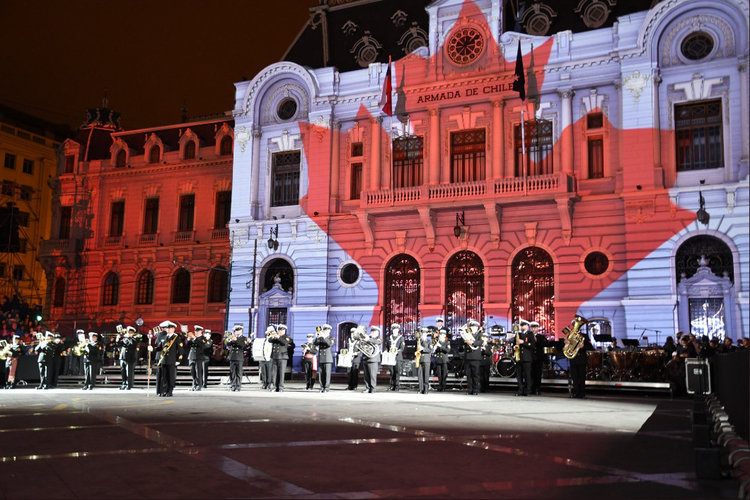

MARPAC Imaging Services
It’s an attractive job for young Canadian musicians out of university, who love travel and the excitement of doing something different every day, and want the security of health, dental, and even housing benefits. But given the unpredictable work schedule and long tours away from home, it can be exhausting too, especially for people with families. There is the trade-off of having to work overtime during busy seasons, too.
For both Bligh and Taylor, a major draw is the opportunity for professional growth – musicians can develop their careers by taking courses paid for by the military in music composition and arrangement, band management, conducting and directing.
“A lot of the job is what you make of it. You can take the bull by the horns and rise up to become Commanding Officer, Band Chief, or [you can] take out-of-trade postings to learn about other parts of the military,” says Bligh.
Looking forward, Bligh wants to keep expanding her knowledge and be the best musician she can be. Taylor aspires to work his way up through the military ranks, spend time as a conductor, and get involved with the public relations and production aspect of his band.
For more information about musical careers in the Canadian Military, visit http://www.cmp-cpm.forces.gc.ca/dhh-dhp/musi/ar/index-eng.asp
Banner image: MARPAC Imaging Services

